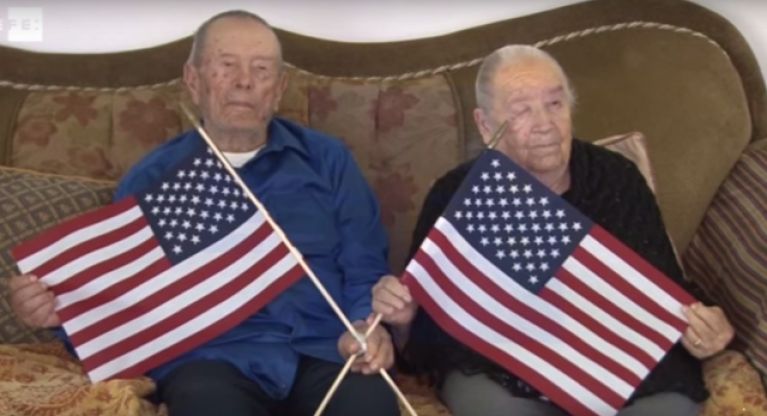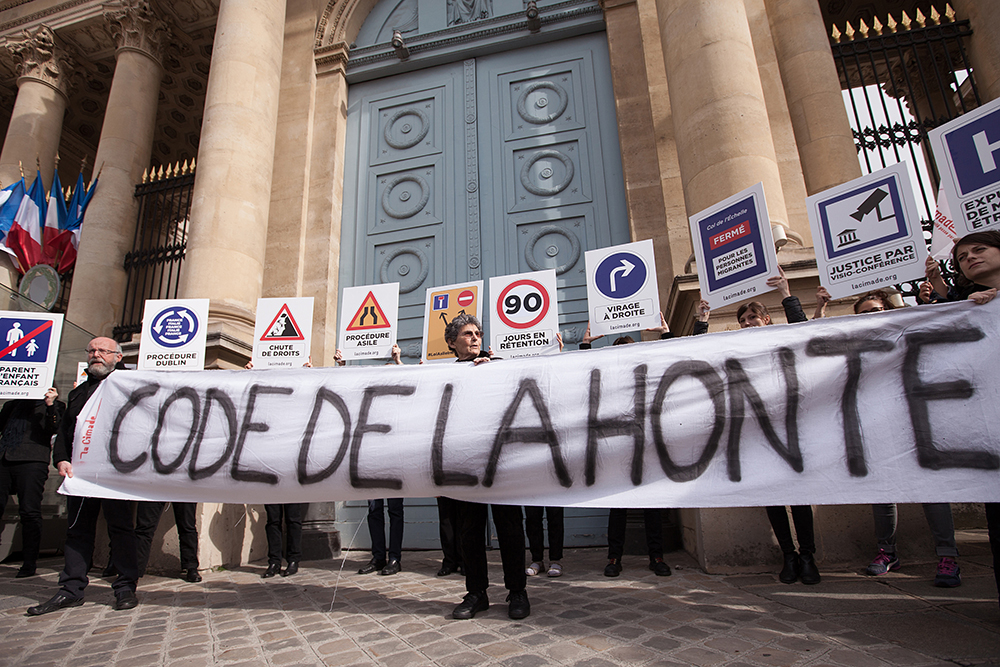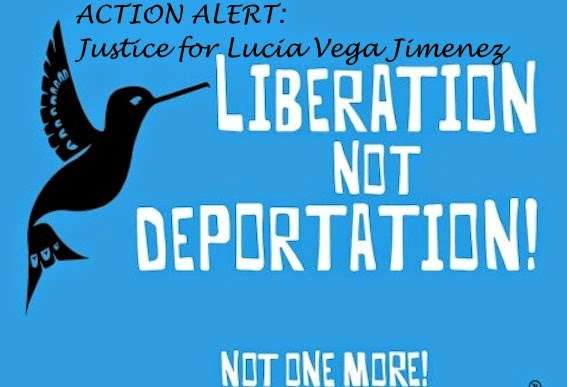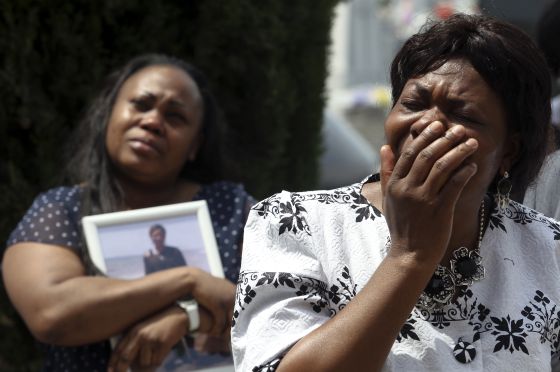
Twin brothers who were scheduled to prove that they were born in the United States. The twins were born with the assistance of a midwife in a border town. They now potentially face deportation.
It happened under George W. Bush and Barack Obama, but it tapered off in 2009 after a lawsuit by the ACLU. Now, with Donald Trump in office, the number of Latinx citizens who have had their citizenship questioned and their passports revoked has reached hundreds, maybe even thousands. The reason? Being delivered by midwives in Texas’s Rio Grande Valley.
The crackdown began because of accused fraud in the 1950s, whereby midwives and some physicians along the Southern border listed U.S. births for babies born in Mexico. The use of midwives in the region was common, a tradition, because the cost of hospital care was too high. It is nearly impossible to ascertain which midwife-granted birth certificates are fraudulent and which are not.
Throughout the early to mid-20thcentury, borders between the two countries were open, and Mexican and American citizens would travel back and forth on a regular basis. Ironically, it was more difficult to obtain dual citizenship in Mexico if the child was born in the United States to Mexican parents, and if the child was first registered in the United States, the child’s U.S. citizenship was rarely questioned. Immigration law followed an “oldest public document” policy; the child’s oldest public document was considered the most reliable evidence of a child’s place of birth. In the late 1980s and early 1990s, a push to close the U.S-Mexican border followed in the wake of the legalization program enacted under President Reagan.
As the push to make citizenship more difficult and closing the border started ramping up, the government started filing fraud charges against midwives in south Texas. Between 1960 and 2008, more than 75 midwives were convicted of signing birth certificates for children they did not deliver. Midwives would end up guessing which certification were given out fraudulently, leading to overly-inclusive lists of names. The parents of the children that were named were not given notice that they were named, and were not given the opportunity to challenge the inaccuracy of the lists. What’s even more alarming was the fact that 250 midwives were deemed “suspicious” with 175 charges being dropped. The U.S. Government never did explain how or why they were considered under suspicion, but egregiously claimed that 15,000 midwife forgeries exist in south Texas. The effect has raised suspicion toward citizens born through midwives in certain regions, a rising witch hunt against midwives and an attack on the children they delivered.
As part of the Western Hemisphere Travel Initiative in June 2009, U.S. citizens who wished to exit or enter the United States were required to have a valid U.S. passport or passport card. The process caused problems for citizens born to midwives. The passport approval process became a convoluted ordeal, forcing the filing of carious legal actions. Problems occurred at a port of entry when a U.S. citizen’s passport reveals birth by midwife, especially if the midwife is on the government’s suspicious or convicted lists. Passport issues also arose in the cases of U.S. citizens who have never left the United States after their birth.
As part of a settlement from a class action lawsuit filed by a coalition of civil rights and legal organizations – including the ACLU, the ACLU of Texas, the international law firm Hogan & Hartson LLP, and Refugio del Rio Grande, Inc. – according to ACLU Racial Justice Program staff attorney Vanita Gupta, “Citizens will no longer be denied a passport solely because of their race, ancestry or because they happened to be born at home with a midwife.”
In 2017 alone, 971 people were denied passports. Those who have had their passports denied or revoked are in a state of limbo, their official birth certificate in doubt, and face possible detention and deportation. An attorney in Brownsville, Jamie Diez, said, “I’ve had probably 20 people who have been sent to the detention center—U.S. citizens.” Coupled with Trump’s crackdown on nonexistent “voter fraud” and campaigns for more restrictive voter identification laws in more conservative areas, especially Texas, those who have had their citizenship questioned may be barred from their legal right to vote.
According to immigrant attorney, Carlos Batara, “From a practical standpoint, the government actions are poorly reasoned…even in cases of seniors who may have been fraudulently registered as U.S. citizens at birth. On the other hand, if there was a fraud committed at the time of birth, they played no decision-making part. They did not commit the fraudulent act. Babies at birth are incapable of criminal intent. On the other hand, if their citizenship was fraudulently procured . . . To the extent they have lived an exemplary life, stayed out of trouble with the law, worked steadily and paid taxes, bought a home for their offspring, little, if any, public good is derived from stripping them of citizenship at such a late stage in their lives. Moreover, little, if any, positive benefit flows to the U.S. government from stripping their spouses and offspring, including grandchildren, of their citizenship . . . which was gained via the family patriarch’s presumed citizenship status. So what principles of legality or compassion, then, are served by challenging these seniors and turning their entire lives, and the lives of their families, upside down 50-60 years later? My view? Absolutely none.”
Why then are we so quick to launch a witch hunt against midwives and the children that they delivered?
(Photo Credit: Batara Immigration Law)





 Samba Martine died, or was killed,
Samba Martine died, or was killed, 